C.D. Besadny Conservation Fund
Overview
The C.D. Besadny Conservation Fund was established to invest in conservation and education projects that benefit Wisconsin’s lands, waters, and wildlife, and that connect people to Wisconsin’s outdoors. Grants up to $5,000 are available. The Natural Resources Foundation of Wisconsin is deeply committed to advancing diversity, equity and inclusion. We are making efforts within our own organization and by working with our grantees to advance this important work across Wisconsin’s conservation field. Learn more about our diversity, equity, and inclusion work here.
Grantmaking Priorities:
Proposals should address one or more of the following priorities:
- Projects that engage communities in Wisconsin who have been historically marginalized, underrepresented, or excluded.
- Projects that benefit Wisconsin’s rare species and/or natural communities identified in the Wisconsin Wildlife Action Plan.
- Projects that build climate resiliency of Wisconsin’s lands, waters, and wildlife through natural climate solutions or climate adaptation, especially those aligned with the Wisconsin Initiative on Climate Change Impacts (WICCI).
Eligibility:
- Applicant must be one of the following: a public charity with approved 501(c)(3) exempt status (under section 509(a)(1), 509(a)(2), or 509(a)(3) Type I and Type II); a federal, state, or local governmental unit, an American Indian nation or tribal community; or an accredited college or university. The following types of organizations are not eligible for funding: individuals; businesses; section 509(a)(3) Type III supporting organizations; private foundations; and private operating foundations.
- The total project budget may not exceed $10,000, and overhead costs shall not exceed 20% of the grant.
- A one-to-one match is encouraged, but not required. Match may include in-kind support such as volunteer hours or donated materials.
- Only one application will be accepted per organization per grant cycle.
How to Apply:
- Determine if your project addresses our grantmaking priorities and meets our eligibility requirements.
- Complete the application (paper copies of applications are not accepted).
- Submit all materials to NRFgrants@WisConservation.org by September 1st.
- Applicants will be notified within 8 weeks following the submission deadline.
Congratulations to our 2025 C.D. Besadny Grant recipients
1. Dane County School Tree Nursery Program
This program will provide Dane County schools with the resources (tree cages, tree stakes, soil and tree pots) required to effectively grow, plant, and maintain trees while providing unique environmental education to kids K-12 and supporting climate resiliency. Partner: Capital Area Regional Planning Commission
2. Growing Green with the Green Bay Conservation Corps
The Growing Green program will grow and distribute one hundred free native plant kits to encourage conversion of monoculture lawns into native habitat as an alternative to “No Mow May”, as well as offer education and mentoring to the community. Partner: City of Green Bay – Green Bay Conservation Corps
3. Mechanical Brush Clearing for Prairie Restoration on the Sauk Prairie
Brush and shrubs will be removed by a commercial mowing crew at a prairie restoration site within the WDNR-owned Sauk Prairie State Recreation Area, which will provide critical support to the restoration efforts of volunteers in the absence of prescribed burns. Partner: Sauk Prairie Conservation Alliance Inc.
4. Merrimac Preserve Storm Damage Clean-up and Firebreak Improvement
The Riverland Conservancy will clear storm damaged trees, accumulated woody debris, and invasive brush from a firebreak corridor at Merrimac Preserve to directly improve the oak woodland plant community and enable a 200-acre spring 2026 prescribed burn. Partner: Riverland Conservancy Inc.
5. Mukwonago River Oak Barrens Habitat Enhancement
This project will enhance the habitat of the Mukwonago River Oak Barrens, one of Wisconsin’s rarest kinds of habitats, all while creating new opportunities for local volunteer management of the site. Partner: The Prairie Enthusiasts Inc.
6. Refuge and Growth for Monarchs and People
The Monarch Butterfly Conservation Project will build a permanent pollinator habitat while empowering incarcerated individuals in Wisconsin by engaging participants in a structured, five-day-a-week curriculum that blends environmental education with hands-on experience. Partner: State of Wisconsin Redgranite Correctional Institution
7. Restoring Riverside Park
Riverside Park, an urban park along the Milwaukee River, suffered damage from 2025 floods. The Urban Ecology Center is working to repair this damage while creating a more resilient native ecosystem that will support the city for years to come. Partner: Urban Ecology Center Inc.
8. The Jackson Creek Restoration Project
This project will safeguard imperiled plant communities while providing green space to those living in an urban setting. In collaboration with community partners and volunteers, restoration efforts will ensure the Preserve remains both a refuge for biodiversity and an accessible outdoor classroom for generations to come. Partner: Kettle Moraine Land Trust
Donate

Marie Jensen
Conservation Program Specialist
(608) 409-3146
Marie.Jensen@WisConservation.org
Marie Jensen (she/her) provides administrative support for NRF’s conservation and environmental education efforts, including coordinating our grant programs and conducting outreach with our partners, and coordinates our Diversity in Conservation Internship Program.
Banner photo by Patrick Wilson

